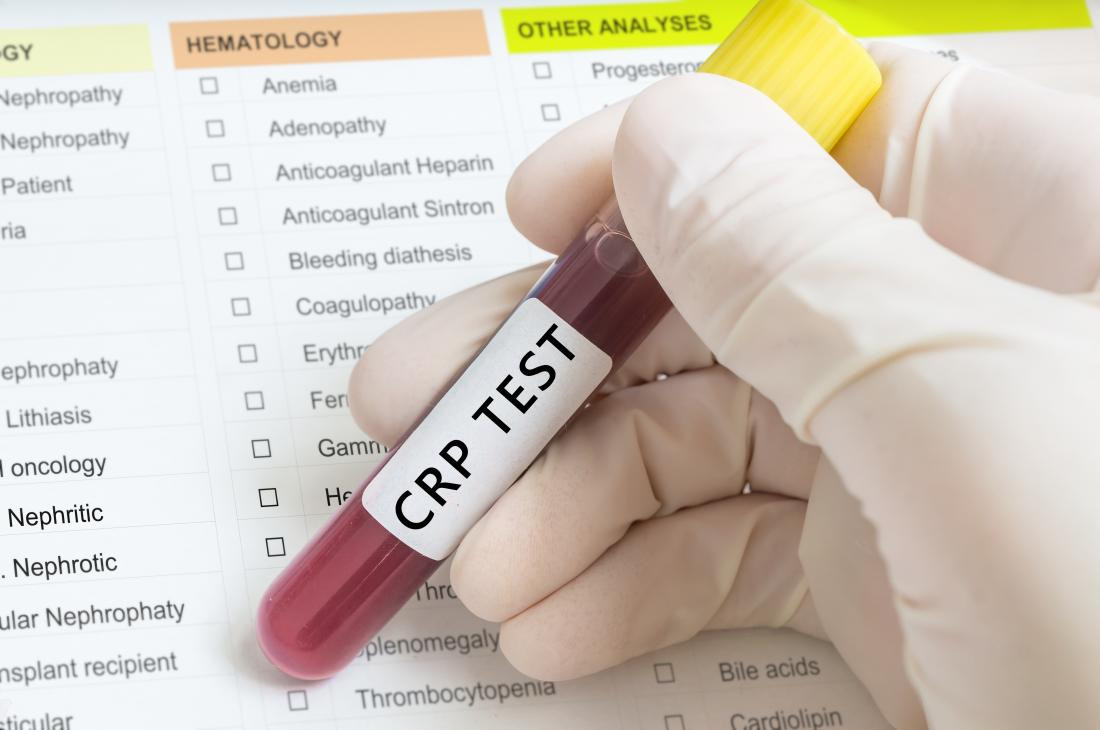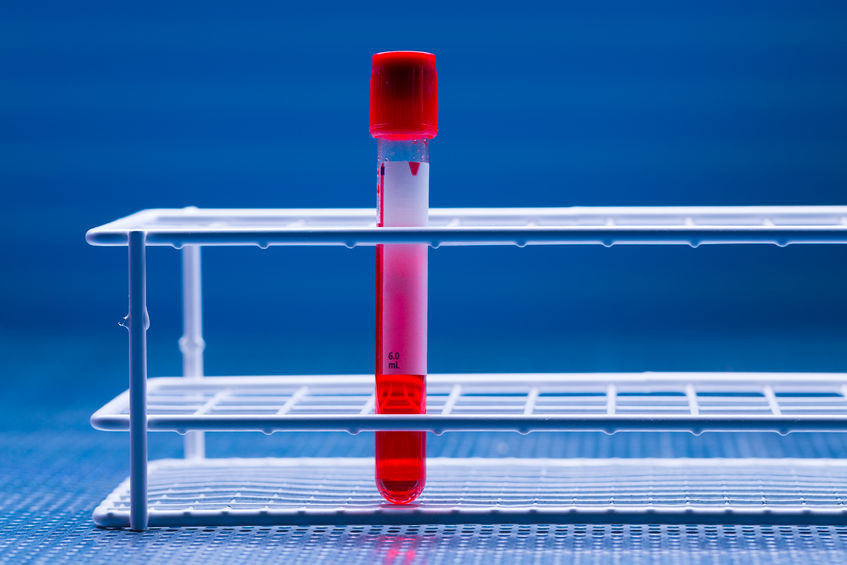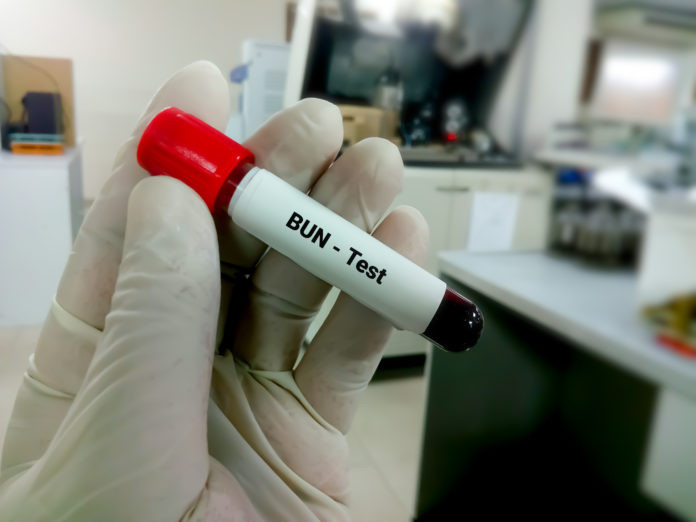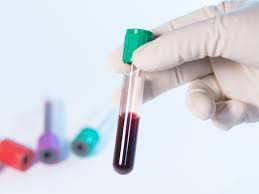Definition
A quantitative CRP test measures the concentration of C-reactive protein (CRP) in your blood serum, reported in milligrams per deciliter (mg/dL).
CRP is a protein synthesized by the liver, typically found in low levels in the bloodstream. When the body undergoes inflammation, the liver increases CRP production, releasing it into the bloodstream. Elevated CRP levels suggest the presence of significant inflammation due to a medical condition.
Inflammation serves as a natural defense mechanism, protecting tissues and supporting the healing process after injury, infection, or illness. Acute inflammation occurs suddenly and is usually temporary, as seen when a skin injury causes redness, swelling, and pain lasting a few days.
However, prolonged or chronic inflammation can harm healthy tissues. This condition may arise from persistent infections, certain autoimmune disorders, or other chronic diseases. Repeated tissue damage or irritation, such as from smoking or exposure to harmful environmental substances, can also lead to chronic inflammation.
A CRP test helps determine the presence and intensity of inflammation but does not specify the cause or location of the inflammatory response.
Indications
A quantitative CRP test is useful for detecting or monitoring inflammation in both acute and chronic conditions, including:
- Patients exhibiting symptoms suggestive of bacterial or viral infections
- Inflammatory bowel diseases such as Crohn's disease and ulcerative colitis
- Autoimmune disorders where the immune system attacks healthy tissue, resulting in conditions like lupus, rheumatoid arthritis, and vasculitis
- Respiratory conditions such as asthma
Doctors may also utilize this test to evaluate whether treatments for chronic inflammation are effective. Additionally, the test is instrumental in aiding treatment decisions for sepsis, a severe, life-threatening response to an infection spreading through the bloodstream. Sepsis triggers widespread inflammatory reactions that can damage multiple organs and requires urgent medical intervention.
CRP levels fluctuate based on the degree of inflammation in the body. A decrease in CRP levels after an initial rise often indicates successful treatment or recovery.
Contraindications
There are no specific contraindications for this test. If there is an issue, such as an infection or bruising on the arm, making blood collection challenging, the sample can be taken from another site on the body.
Preparation Before the Test
Certain medications may influence test results. Inform your doctor if you are taking supplements or medications such as ibuprofen, aspirin, or other NSAIDs like diclofenac. However, do not discontinue any prescribed medication without consulting your doctor first.
Test Procedure
A healthcare professional will collect a blood sample from a vein in your arm using a small needle. The practitioner will wear gloves and personal protective equipment (PPE) during the process.
When the needle is inserted, a small quantity of blood will be drawn into a special tube. You may feel mild discomfort when the needle enters or exits the vein, but the procedure typically lasts less than five minutes. The collected blood sample is analyzed in the laboratory using specialized equipment.
Normal and Abnormal Values
CRP levels are measured in milligrams per deciliter (mg/dL). The normal CRP range is typically less than 0.9 mg/dL. Variations in CRP levels can indicate the severity of inflammation:
- Moderate increase: 1–10 mg/dL
- High increase: >10 mg/dL
- Very high increase: >50 mg/dL
Due to differences in laboratory equipment, the ranges for normal and elevated CRP values may vary slightly. It is important to consult your doctor for an interpretation of your results.
Results and Recommendations (Further Testing)
In healthy individuals, CRP levels in the blood are generally very low. The results of a CRP test can indicate the severity of inflammation but not its exact cause. To confirm the underlying condition, your doctor may suggest additional tests.
Elevated CRP levels may result from conditions such as:
- Systemic inflammation from autoimmune diseases like rheumatoid arthritis or lupus
- Heart attack
- Pancreatitis
- Bronchitis
Highly elevated CRP levels may be linked to:
- Acute bacterial infections
- Viral infections
- Systemic vasculitis
- Severe physical trauma
Severely elevated CRP levels are associated with acute bacterial infections in 90% of cases.
While the CRP test indicates the presence and severity of inflammation, it cannot determine the specific cause. A diagnosis requires a comprehensive assessment, including your test results, symptoms, and medical history.
Consult the Right Doctor
If your quantitative CRP test results indicate elevated CRP levels, it does not necessarily mean that you have a medical condition requiring treatment, particularly if the increase is minimal. Factors such as smoking, obesity, or pregnancy can slightly raise CRP levels.
Your doctor will explain the conclusions from the test results and provide guidance on the next steps you can consider.
Want more information about laboratory, radiology, and other test results? Click here!
- dr Hanifa Rahma
C-Reactive Protein (CRP) test: Medlineplus medical test (2022) MedlinePlus. U.S. National Library of Medicine. Available at: https://medlineplus.gov/lab-tests/c-reactive-protein-crp-test/ (Accessed: May 3, 2023).
C-Reactive Protein (CRP) test: What it is, Purpose & Results (2022) Cleveland Clinic. Available at: https://my.clevelandclinic.org/health/diagnostics/23056-c-reactive-protein-crp-test (Accessed: May 3, 2023).
StatPearls (2022) Phlebotomy, StatPearls. StatPearls Publishing. Available at: https://www.statpearls.com/ArticleLibrary/viewarticle/137458 (Accessed: May 3, 2023).












